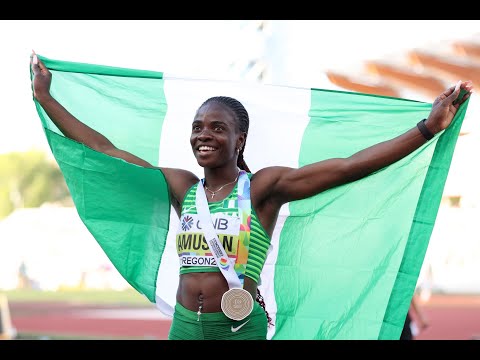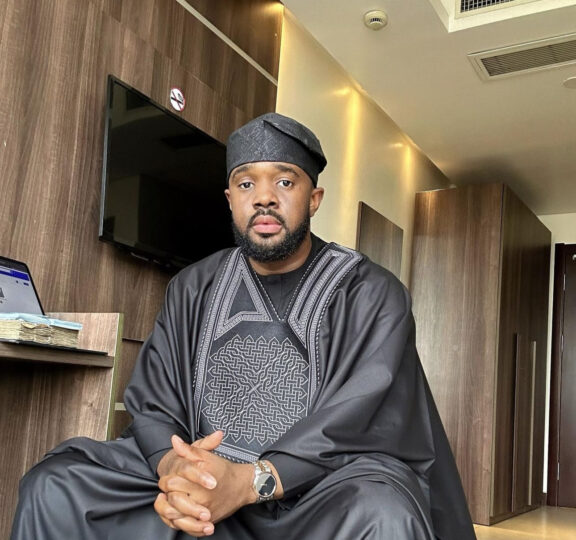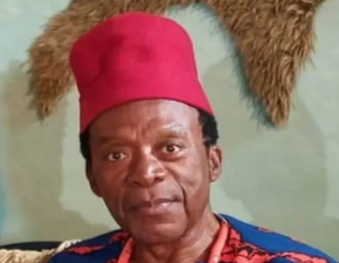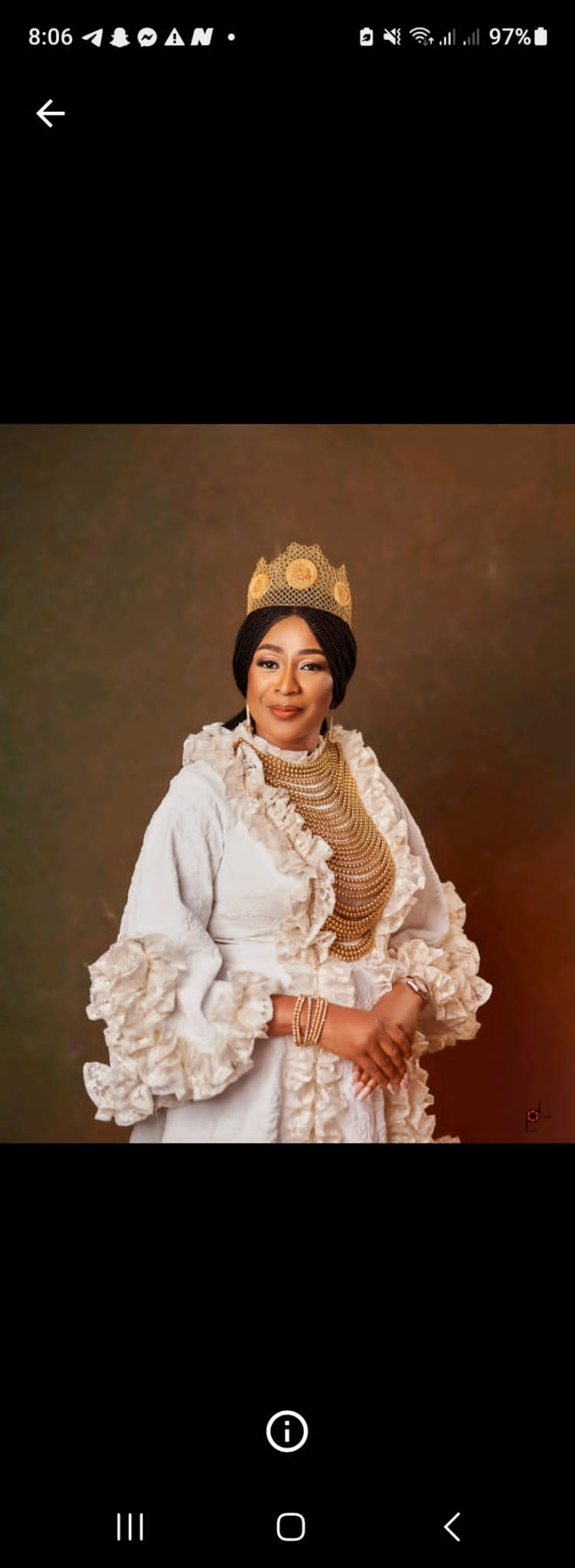ERELU OLAJUMOKE, AN ALLURING CHARMING BEAUTY MAJESTICALLY CLIMBED THE FIFTH FLOOR
…Celebrates Golden Jubilee In Glitz and Amazing Glory
She is a damsel, an embodiment of beauty, brain and brawn, possessing the best of qualities any discerning mind would dream of. She is no one else than Erelu Olajumoke, Erelu of Ifetedo Kingdom and founder/Chief Executive Officer of Erelu Olajumoke Foundation. Very industrious, illustrious and extremely hardworking, Erelu Olajumoke, the Iya Ijo of Bishop Court Chapel in Alagbaka Akure will on Saturday, the 20th of April, 2024 celebrate her 50th birthday, stepping majestically into the fifth floor and marking a golden jubilee that looks every inch, good on her.

The effervescent, glamorous and charismatic Erelu Olajumoke is an enigma, a colossus who has contributed immensely to humanity and the entire global economy. She is graciously blessed with the spirit of giving. Erelu Olajumoke, a magnanimous lady of substance, value and valor has been practically involved in various forms of empowerment, spreading love, passion and absolute generosity to the poor, the needy, the old (elderly), orphans, widows/widowers, the impoverished, the underprivileged and the intimidated members of the society. Endowed with an uncommon traits of great-heartedness, Erelu Olajumoke took it upon herself to alleviate the poverty levels of the people by directly, impacting on their lives.

Oftentimes, this legendary philanthropist, who is very much aware of the fact that health is indeed wealth, has organized various medical outreach programmes that yielded great impact on beneficiaries. Through Erelu Olajumoke Foundation, this amazon of beauty has transformed the lives of many, bringing in, health care professionals from around the globe to give succor to those with health challenges. Her roles in the rejuvenation and revamping of people’s health are awesome and iconic. Those who have benefitted from her tremendous medical contributions would always say lofty tales about her.

As an outstandingly committed child of God, Erelu Olajumoke who is currently basking in the euphoria of clocking 50, has been and still involved in fundraising activities towards her church and evangelism. Her passion and zeal for spreading the good news of God, winning souls into the Kingdom of God and expunging sinners from the gory dungeons of sin are highly recognized and commendable. She is absolutely emotional and animated to the church, the Gospel and everything about her Creator.

An extremely supportive partner, Erelu Olajumoke is simply, the strongest pillar of support to the political and democratic achievements of her beau, the distinguished Senator Oluwole Olubiyi Fadeyi, the dynamic and zestful Senator representing Osun Central Senatorial District at the Upper Chamber of the National Assembly, Abuja.

As a matter of fact, Erelu Olajumoke has displayed so much affection for the amiable Senator through unwavering support, unalloyed devotion to his democratic ideologies and strategies coupled with her reciprocating fondness for the people her hubby represents at the Red Chambers. Erelu Olajumoke synergized her benevolent acts with those of her beloved Senator Olubiyi Fadeyi by catering for constituency needs under his Osun Senatorial District covering Osogbo, Ila, Boripe, Odo-Otin, Boluwaduro, Ifedayo, Irepodun, Olorunda and Orolu Local Government Areas.

The ‘birthday girl’, Erelu Olajumoke regularly extends her olive oil of love, passion and care for all widowed women and men in these communities not excluding helpless and hopeless orphans, out of school children, those experiencing excruciating poverty amongst other less-privileged within the Osun Central Senatorial District and beyond. Erelu stands as a rock of Gibraltar, upholding the democratic values of her hubby with in-depth determination, perseverance and tenacity. As the First Lady of Osun Central Senatorial District, Erelu Olajumoke has performed meritoriously contributing immensely to the successful foray and great achievements of her best friend, her best adviser, best confidant and above all best lover, the distinguished Senator Ajagunla Oluwole Olubiyi Fadeyi, the Tayese II of Ifetedo Kingdom.
With the input and advise from Erelu Olajumoke, Senator Olubiyi Fadeyo has brought new hope to the good people of Osun Central Senatorial District, giving our palliatives and economic empowerment equipments like buses, cars, motorcycles, tricycles, hairdressing equipments, barbing gadgets, grinding machines, freezers amongst other vital poverty alleviation to drastically and astronomically reduce poverty from the shores of that senatorial district.
In a nutshell, Erelu Olajumoke, who will be gathering high net-worth dignitaries, top celebrities, society bigwigs, powerful political stalwarts, family, friends and well-wishers come Saturday to celebrate her joining the club of the 50s, could be described as an awesomely delectable queen with an uncommon heart of gold.
Happy birthday to this rare gem, a blessing to humanity and the solid pillar of support behind one of Nigeria’s most reliable Senators, Ajagunla Olubiyi Oluwole Fadeyi.
Barrister Olaitan Ilori






 Business6 months ago
Business6 months ago
 celebrity radar - gossips4 months ago
celebrity radar - gossips4 months ago
 celebrity radar - gossips4 months ago
celebrity radar - gossips4 months ago
 Business3 months ago
Business3 months ago



















